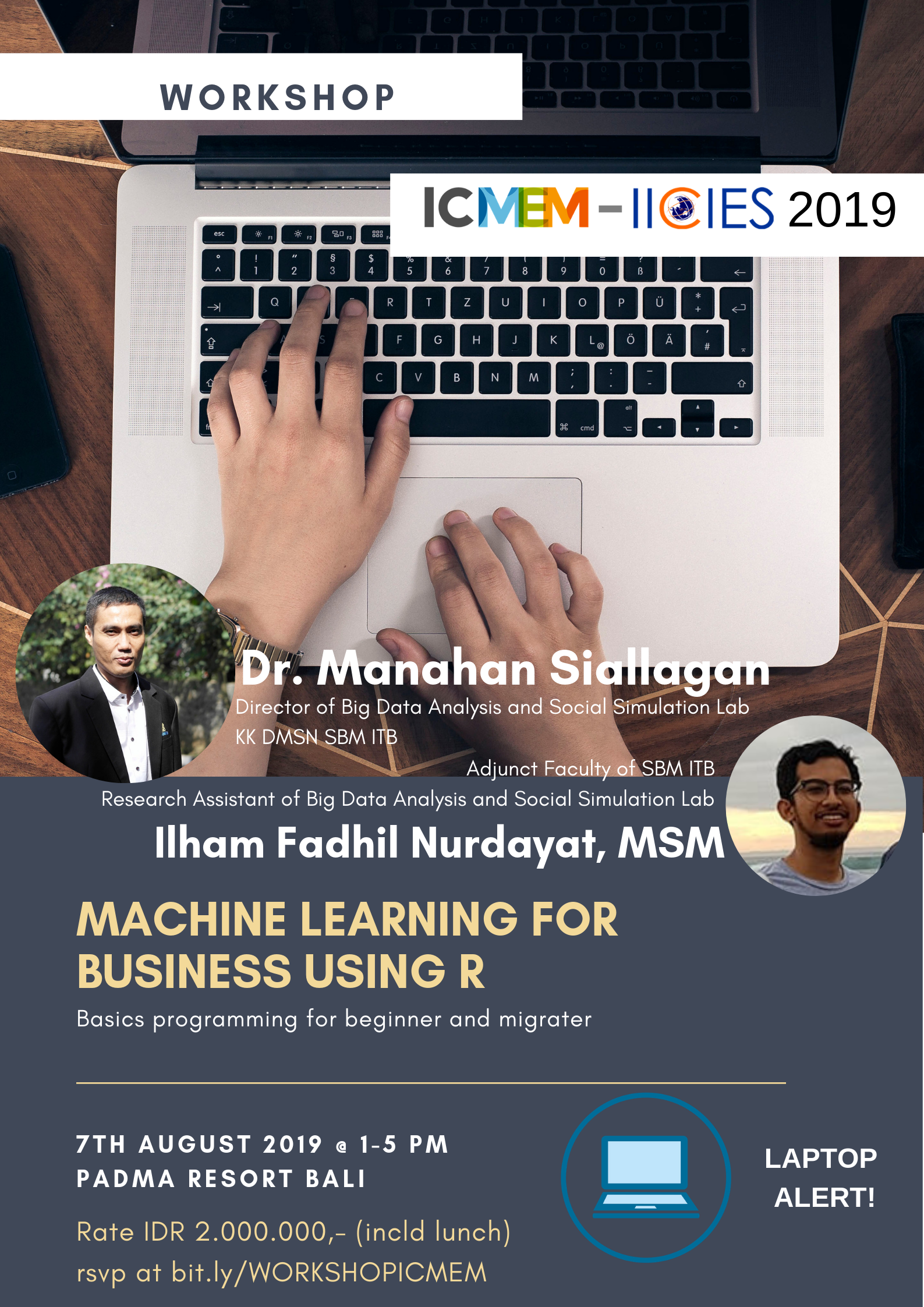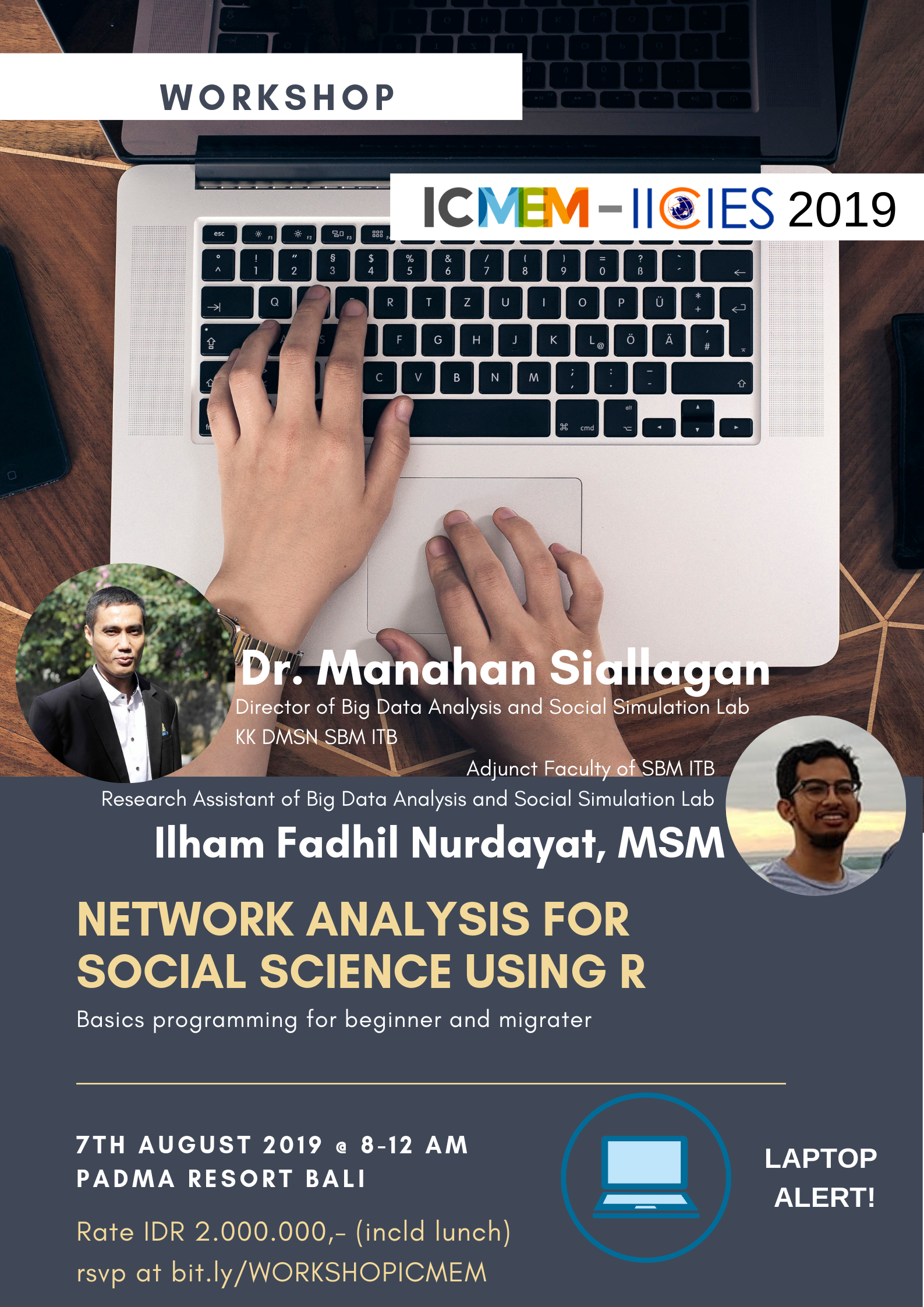Workshops
Simple Machine Learning for Business using R
Recent years machine learning has become one of the leading methods of analysis for technological company such as Google, Amazon, and Netflix. They used machine learning to build recommendation system, image recognition, and wide range of prediction application. However, how about its implementation in smaller scale business and industry? Implementation of machine learning in smaller scale is feasible due to increased open source program that does not required high level programming skill and lower hardware requirement. R is an open source program that enabled only required entry level programming skill to employ machine learning method.
In this workshop you will learn introductory level of R programming language and developing simple machine learning in business context. Outcome of this workshop is the participants can develop machine learning model for their own business case.

Network Analysis for Social Science using R
Network is a leading approach to model real world complexity in recent years. Its application ranged from economics, technology, to field of biology has given novel finding in each field. One of prominent implementation of network analysis is in organizational behaviour. IBM studied that pattern of knowledge sharing in an organization is results of its network structure. Combined with increasing data collection method and quality, allowed examination on larger network in more efficient way. R and Gephi is an open source program that enabled only required entry level programming skill to employ network analysis approach.
In this workshop you will learn introductory level of R programming language, Gephi skill and conducting network analysis in business context. Outcome of this workshop is the participants can analyse data from network perspective using R and Gephi.

Multilevel Modelling Workshop
Introduction
This workshop provides the basics of multilevel modeling, focusing on practical applications rather than statistical theory. Researchers and evaluators from a range of disciplines often collect data that have a hierarchical structure. Students are nested within schools (and/or classrooms), employees are nested within firms, and multiple test scores are nested within students. One consequence of this nested structure is that observations are not statistically independent, thus violating a basic assumption of standard analytical techniques. Ignoring the nesting effect and proceeding with conventional, single-level methods of analysis (like linear regression) can yield misleading results. This one-day seminar provides an introduction to multilevel models (sometimes called hierarchical linear models or general linear models), a statistical approach that accounts for the nesting effect and avoids these problems, as well as those associated with aggregation and disaggregation.
Expected Outcomes
By the end of this workshop, participants should know the following :
- The conceptual foundations of multilevel models.
- An appreciation of the advantages and disadvantages of multilevel modeling as compared with other approaches to nested data.
- Modeling slopes and intercepts as outcomes.
- Approach to building growth models in a multilevel context.
- How to interpret and explain the output from multilevel modeling software.
- Practical tools and strategies for developing and testing multilevel models.
- A clear understanding of the differences between fixed and random effects.
